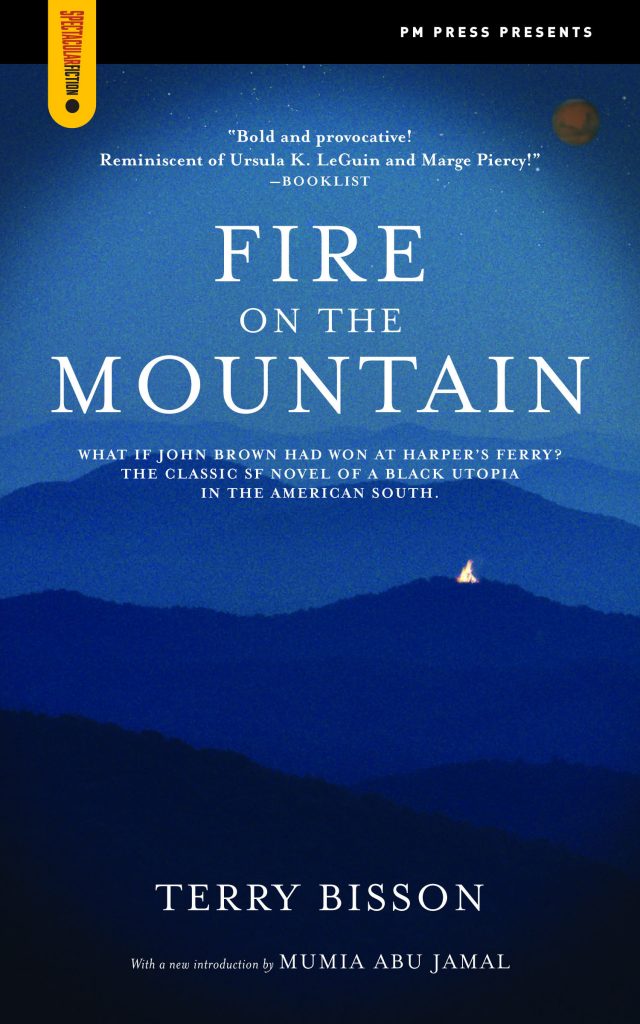Bisson’s Fire on the Mountain: alternate history in which John Brown wins at Harper’s Ferry
By Cory Doctorow
BoingBoing
July 28, 2010
I thought of sf writer Terry Bisson’s work as being delightfully absurdist, always moving but never solemn, but then I read Fire on the Mountain, his acclaimed 1988 short novel, reprinted in 2009 by PM Press in a handsome pocket edition with an introduction written by the revolutionary Mumia Abu Jamal from his cell on death row. Now I know that Bisson is perfectly capable of being as solemn as a funeral, and that when he takes on that mode, he is just as moving, and sweetly sad in a way that reveals the powerful mastery that’s hidden behind his whimsy in stories like They’re Made of Meat and Bears Discover Fire.
Fire on the Mountain
is an alternate American civil war history, in the classic mode: one
battle goes differently, for the want of a battle the war is lost, and
the nation becomes an altogether different place. But Bisson’s approach
is more than a bit of militaristic speculation: it is a revolutionary
polemic clothed in an exciting and moving adventure story. In Bisson’s
world, Harriet Tubman joins John Brown at Harper’s Ferry and the two of
them kindle a nationwide abolitionist uprising that sparks a global
series of socialist revolutions, in Canada, Haiti, Mexico, France,
England, Ireland, and across the American continent among indigenous
people.
The story takes place in two timelines: the history
of the revolution is told in the form of a memoir of a slave-boy who
grew up to be a revolutionary leader, and in correspondence from a
white Virginian doctor who turned his back on privilege and fought
alongside the rebels in John Brown’s army.
Then there’s a
“contemporary” story, set in 1959, when socialist Africa is just about
to land its first astronauts on Mars. Yasmin is the great-great
granddaughter of the ex-slave whose memoir recounts the history of the
revolution, and she is the widow of an African astronaut who died in
space on an earlier, failed Mars mission. She is delivering her
ancestor’s papers to a revolutionary museum, travelling cross-country
with her teenaged daughter, Harriet, the bother of them absorbed with
bitter emotion at all the space travel in the news.
Weaving
between these three stories, Bisson paints a picture of a world where
progress is based on peace, not war, cooperation, not competition. And
he tells the gripping tale of the war that was fought and the blood
that was shed to get to that world, and of the ambivalence that the
fighting and the not-fighting engender among all concerned.
It’s
a slender novel, a mere 150 pages, but it does the science fiction
trick of making you step back from your own world and see it more
clearly, and it does so while wrenching your heart and setting your
pulse pounding. All in all, one of the best alternate histories I’ve
read — and a side of Bisson (a southerner who fought in the John Brown
Anti-KKK League) I’m glad to have discovered.






